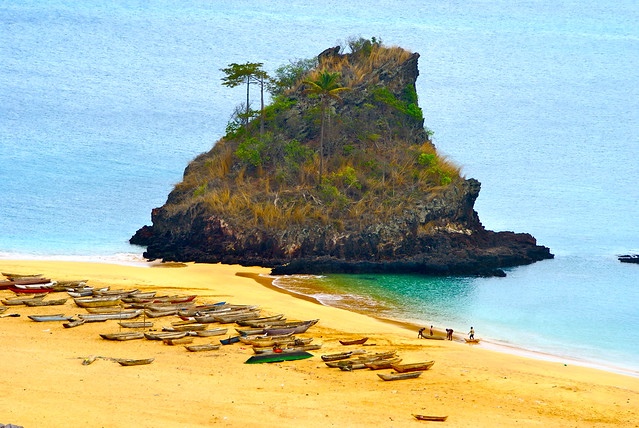Top 4 Facts About Human Trafficking in Equatorial Guinea

Human trafficking in Equatorial Guinea is a substantial issue. Corruption and negligence run deep within its government. In Equatorial Guinea, 76.8 percent of the population lives in poverty. These circumstances make the people of this country extremely vulnerable to exploitation and trafficking.
Top 4 Facts About Human Trafficking in Equatorial Guinea
- Equatorial Guinea has remained on Tier 3 from 2011 through 2018. This means that the country does not meet the minimum standards for the elimination of human trafficking. And they are not making necessary efforts to do so. Although there have not been significant improvements concerning the status of human trafficking in the country, the government made progress by addressing this problem. Fortunately, the U.S. is helping Equatorial Guinea develop a plan for this problem. They are continuing to spread public awareness of trafficking within the country. They achieve this by providing shelter and services to victims and investigating more trafficking-related cases. Despite the government taking steps in the right direction, no traffickers have ever been convicted under the Equatoguinean 2004 anti-trafficking law. The government also failed to report any victims, making the exact number unclear. There have even been reports of general corruption by government employees in trafficking-relating cases.
- Equatorial Guinea is a source country for human trafficking. The majority of victims are trafficked in Bata, Malabo and Mongomo. These are three wealthy cities in the country that attract many migrant workers who are easily exploited. Women and girls are most vulnerable to sex trafficking and prostitution. In many cases, parents will send their daughters to work for intermediaries in exchange for money. However, these girls are then exploited into domestic servitude and sex trafficking. For men and young boys, forced labor is most prevalent in the mining industry. Traffickers steal boys who are begging on the streets or providing services such as shining shoes. Children from poorer villages are most vulnerable to exploitation. This is due to a lack of education and economic opportunities. Some traffickers even take children with parents’ consent. They promise the family that they will pay for the child’s education but actually selling them into forced labor.
- Combating human trafficking in Equatorial Guinea is one of France’s priorities. The French government acknowledges the severity of human trafficking, specifically in West Africa. In 2013, the Ministry of Foreign Affairs in France created a strategy to fight this problem. The aim was to decrease trafficking in the Gulf of Guinea countries such as Nigeria, Ghana, and Togo. These countries share the same region as Equatorial Guinea. The transnational human trafficking rate in this region is high. The project focused on stopping cross-border trafficking by increasing the country’s security. By addressing human trafficking in the Gulf of Guinea region, the French government is helping the country escape from its cruel grasp.
- The U.S. Embassy is involved with the Equatoguinean government. It is helping the country to address and end human trafficking. The Embassy collects significant data for the annual Trafficking in Persons Report. Additionally, it recognizes the severity of trafficking-related crimes within the country. In order to end human trafficking in Equatorial Guinea, the U.S. Embassy created a list of strategy and recommendations to further anti-trafficking efforts. Some of the main points in this list are:
- prosecuting traffickers and complicit officials,
- identifying the trafficked victims and
- researching the nature of the crime within the country are some of the main points.
A Problem Worth Fighting For
The challenge of eliminating human trafficking in Equatorial Guinea may seem like an impossible task, but it is crucial. This modern-day slavery is a result of corruption and a violation of human rights. Although the status of human trafficking in this nation may seem bleak, the people of the country have reason to be optimistic. Foreign aid from different countries and the acknowledgment of the Equatoguinean government can help eliminate the issue of human trafficking in countries such as Equatorial Guinea.
– Marissa Pekular
Photo: Flickr
